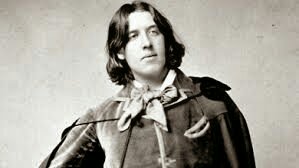Portia Text: By Oscar Wilde
(To Ellen Terry)
I marvel not Bassanio was so bold
To peril all he had upon the lead,
Or that proud Aragon bent low his head
Or that Morocco’s fiery heart grew cold:
For in that gorgeous dress of beaten gold
Which is more golden than the golden sun
No woman Veronese looked upon
Was half so fair as thou whom I behold.
Yet fairer when with wisdom as your shield
The sober-suited lawyer’s gown you donned,
And would not let the laws of Venice yield
Antonio’s heart to that accursed Jew –
O, Portia! take my heart: it is thy due:
I think I will not quarrel with the Bond.
Portia Analysis
This poem is like a modern-day ‘fan fiction’ of ‘Merchants of Venice’ by William Shakespeare. Wilde writes this poem for the leading actress of the play, Portia, whose hand in marriage was won by Bassanio after he succeeded in choosing the chest that contained her picture. Two other princes from Morocco and Arragon had chosen the gold and the silver caskets and thus, lost Portia.

After getting married to Bassanio, they received a letter from Antonio where he had mentioned how Antonio could not return the money that Bassanio had taken from the Jewish moneylender, Shylock, keeping Antonio as the debtor. Portia dressed as a lawyer and saved Antonio, her husband’s beloved friend
The narrator of this poem seems to be enthralled by this lady. He is bewitched by her beauty and her brains. He writes that although Bassanio had her heart, she will always have his heart.
About the Poet
Poet Oscar Wilde was born on 16 October 1854 in Dublin. Wilde was a great writer and poet in the Victorian Era. Oscar Wilde, Poems, Plays and Short Stories inspired a number of people in the Victorian Era.

Wilde full name was Oscar Fingal O’Flaherty Wills Wilde and. His father was William Wilde who graduated as a doctor at the age of 28. Oscar’s mother was Jane Francesca Agnes, a famous poet and nationalist of that time.
More Info On- Great Man by Samuel Coleridge, Suicide’s Argument by Samuel Coleridge, Presence Of Love by Samuel Coleridge